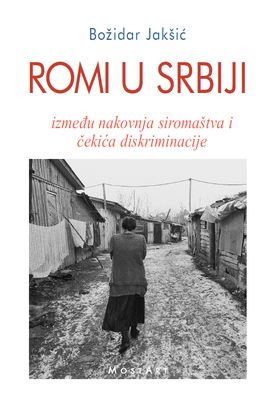
We kindly inform you that, as long as the subject affiliation of our 300.000+ articles is in progress, you might get unsufficient or no results on your third level or second level search. In this case, please broaden your search criteria.

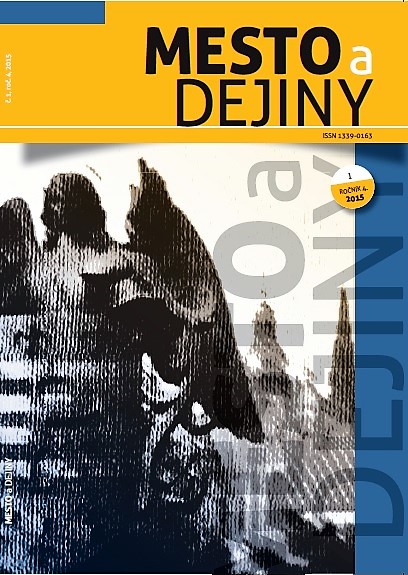
The paper deals with complex problems in addressing the adverse housing situation of the Roma population in Košice. After World War II, part of the city known as the gypsy camp under Moldavská way found itself in an extremely exposed position at the entrance to the city. Arrival the amount of working class from rural areas with extensive construction and urbanization ratios further deepen. Numerous Roma growth was evident. Housing problems are addressed through an allocation of older apartments, phasing out the huts in the camp and fi nally focusing on specifi c Roma settlement. The idea of a separate settlement originated in the mid-60s, in 1970, the planned housing units was not built. Another intention of anticipated settlement was in the area Myslava with lower standard family houses. Because of the high costs the concept of prefabricated houses gallery type was born. The government in 1976 refused to deal with Roma housing in specifi c neighbourhoods. Council city national committee nevertheless approved the construction of Luník IX without a specifi c focus. The construction was carried out in late 1970s, several policies were processed recall procedure Roma families from the camp as well as the old city, according to various streets. In 1981 began the history of Luník IX, its ethnic ghettoization with disastrous consequences to the present.
More...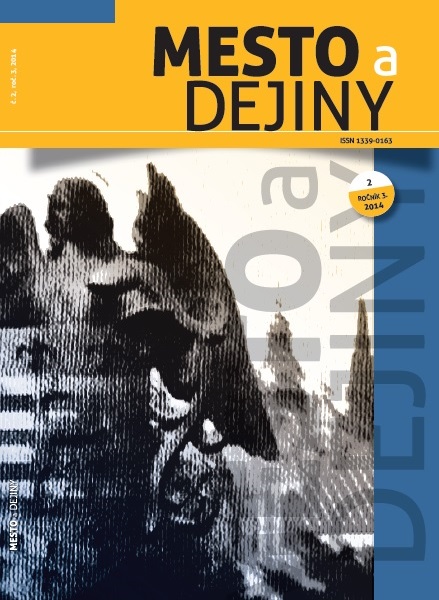
The tradition of motor sport in Slovakia is not rooted so deeply as in the Czech lands, or west European states, where it was developed since the turn of 19th and 20th century. This expensive and marginal activity at the beginning started to grow through the organized motoring associations, which were based in Slovakia during the 1920s and 1930s. In Slovakia didn’t exist stable speedway in this period and the races were organized on public roads, what required the cooperation of the districts’ structures and security forces. This kind of races were more attractive and it made them accessible to a wider circle of audience. From the slowly beginnings in the first half of the 1920s a solid base of sports motoring has been formed, subsequently extended its activities range from small club trips to events such as: Competition reliability,„Star-driving“, Speed races or Competition of elegance. This positive trend, however, was temporarily dampened by the impact of the global economic crisis, which also closed the pioneering stage of development of motor sport in Slovakia. This paper aims to capture the character of a relatively dynamic growth of modern sport activity in its pioneering stage in Slovakia.
More...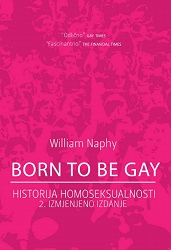
Svaka historija homoseksualnosti bi trebala početi suočavanjem dvije povezane, ali razdvojene problematike vezane za seksualnost. Na prvom mjestu se nalazi odnos “prirode nasuprot vaspitanja”. Naime, da li je preferiranje suprotnog spola, ili istog, rezultat genetske predispozicije ili je u pitanju vaspitanje? Bilo bi primamljivo, i suviše lako, odgovoriti kako je u pitanju vjerovatno kombinacija ovo dvoje te naprosto krenuti dalje. Kakogod, ovo je previše pojednostavljeno te ignoriše pravo pitanje postavljeno (i pretpostavljeno) ovom raspravom. Iako bi se moglo raspravljati o tome da je “priroda” (tj. genetika), primarni faktor pri određenju seksualne orijentacije, to ne znači da će se pojedinac ponašati u skladu sa “genetskom predispozicijom”. To znači da bi osoba mogla biti genetski sklona privlačneju istog spola, ali da ona tu žudnju sublimira, stupa u brak, ima djecu i nikada ne ostvari istospolni odnos. U ovakvim uslovima vlastita kultura, religija, zakoni i vrijednosti mogu dovesti do kratkog spoja u predispozicijama.
More...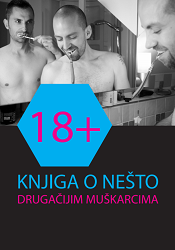
Kada smo 2010. godine krenuli da radimo za i sa lezbejkama, gejevima, biseksualnim i trans* osobama, suočili smo se vrlo brzo sa činjenicom da su život i svakodnevnica ovih grupa u potpunosti nevidljivi u Bosni i Hercegovini. Kroz rad sa zajednicom mnogo puta smo se uvjerili da su gej, biseksualni i trans* muškarci diskriminirani na razne načine u heteronormativnom društvu. Sa druge strane, i u okviru same LGBT zajednice, određene grupe muškaraca se suočavaju sa predrasudama. Biseksualnost se često smatra nepostojanom i prelaznom fazom ka homoseksualnosti, a o transrodnosti, transeksualnosti i transvestiji se ponekad govori kroz podsmjeh i prezir i u okviru LGBT zajednice. Gej, biseksualni i trans* muškarci su najčešće u BiH vidljivi samo u kontekstu nasilja i diskriminacije. Sarajevski otvoreni centar želi da učini vidljivim specifičnosti svake od ovih grupa muškaraca, da ih na taj način osnaži i pruži im prostor da ispričaju svoje priče o identitetima, različitosti, neprihvatanju ili prihvatanju, priče o svojim unutrašnjim svjetovima, maštanjima, žudnji, strahovima, stidu, strasti, slobodi, oprezu, hrabrosti i, konačno, coming outu. Upravo zbog toga je nastala i ova knjiga. 18+. Knjiga o nešto drugačijim muškarcima predstavlja nastavak našeg nastojanja da dokumentujemo, prikažemo, i što široj javnosti približimo LGBT svakodnevnicu. Objavljivanjem knjige Više od etikete. O ženama koje vole žene početkom 2013. predstavili smo „žensku“ perspektivu, dok je ova knjiga njen „muški“ pandan. Knjiga se sastoji iz četiti dijela. U prvom dijelu Mladen Lakić daje pregled 15 intervjua, koje su Jozo Blažević, Feđa Bobić i Jasmina Čaušević vodili sa parovima i pojedincima. Gej, biseksualni i trans* muškarci govore o svojoj seksualnosti, vezama i mnogim drugim aspektima nešto drugačije muške svakodnevnice. Nakon toga, u integralnoj formi predstavljamo intervju sa Mirnesom Kubatom Vanillom. Uvjerite se i sami zašto je ova priča jedinstvena. U trećem poglavlju donosimo lične coming out priče, dok nam u četvrtom dijelu Ivan Šunjić pruža prostorno-vremenski analitičko-teorijski pogled na seksualnost, identitete i proces kakav je coming out. Umjetnički radovi nešto drugačijih muškaraca – fotografije, slike i grafike, na vizuelan način upotpunjuju knjigu pričajući svoje priče. Takođe, u knjizi se nalaze i dokumentarističke fotografije slovenske fotografkinje Tanje Ristić, i na ovom mjestu joj se najtoplije zahvaljujemo što nam je ustupila svoj rad na korištenje. Kao inicijator ovog projekta, želim da se srdačno zahvalim svojim ko-priređivačima i priređivačici: Jozi, Feđi i Jasmini bez kojih ovaj projekt možda nikada ne bi bio realizovan. Zahvalnost dugujem i Mladenu na autorskoj obradi i uobličavanju obilnog i inspirativnog materijala koji su intervjui obezbijedili, te Ivanu na smještanju knjige u savremene teorijske okvire kroz svoj pogovor. Hvala i Dini na lekturi, te Feđi, još jednom, na prelomu i dizajnu knjige. I za kraj, želimo se zahvaliti i Fondaciji Planet Romeo koja je podržala nastanak ove knjige, te Ambasadi Norveške u BiH koja je finansirala štampu.
More...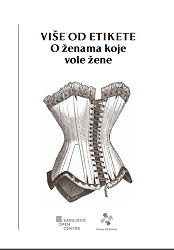
Zbog dvostruke diskriminacije – na osnovu roda i seksualne orijentacije – kojoj su žene koje vole žene u BiH svakodnevno izlo- žene, te zbog nedostatka njihove vidljivosti, odlučile smo potaknuti proizvodnju lezbejske literature i umjetnosti, kako bi LGBT zajednica, šira javnost, te organizacije civilnog društva, posebno one koje se bave pitanjima ljudskih prava, dobile priliku da shvate svu složenost ženskih neheteroseksualnih egzistencija. Publikacija koja je pred vama zamišljena je kao prostor koji ispisuju priče o ličnim iskustvima žena, kroz razne forme - intervjue, prozu, fotografije, poeziju itd. Također, ona predstavlja i početak uspostavljanja specifične ženske, lezbejske vidljivosti kroz stvaranje sopstvenog znanja. Prvobitni naslov publikacije bio je Lične i coming out priče lezbejki i biseksualnih žena u Bosni i Hercegovini, ali kroz rad na analizi sadržaja samih intervjua, uvidjele smo da raznolikosti i fluidnosti identiteta žena daleko nadilaze ova dvije kategorije, te smo zato naziv preimenovale u Više od etikete – o ženama koje vole žene. Ova publikacija sastoji se iz tri dijela. U prvom dijelu se daje teorijski uvod u seksualne i rodne identitete, kao i u coming out proces. Drugi dio čini obimna analiza sadržaja intervjua, koja je preglednosti radi podijeljena u tri cjeline - Identitet(i), Coming out i Svakodnevni život. U trećem dijelu se nalazi književno-teorijski osvrt Merime Omeragić na jednu priču Lamije Begagić, te autentične lične i coming out priče, poezija i fotografije žena koje vole žene iz BiH, od kojih je većina željela ostati anonimna, zbog čega su koristile pseudonime, te stoga nisu navedene u impresumu. Nadamo se da će ova publikacija doći do što većeg broja osoba kako bi im omogućila višeslojni uvid u životna iskustva, uspjehe i probleme sa kojima se susreću neheteroseksualne žene u svojim životima u BiH. Želimo se zahvaliti Jasmini Čaušević za rad na analizi, Aidi Spahić za metodološke smjernice, te za intervjuiranje žena, zajedno sa Sadžidom Hadžić iz Fondacije Cure. Veliki volonterski doprinos pružila je Edina Sprečaković radeći na transkripciji intervjua. Posebno se zahvaljujemo svim ženama koje su pristale da budu dio ove priče kroz svoje priče i umjetnost, i na kraju ističemo da bez podrške i razumijevanja fondacije Kvinna till Kvinna ova publikacija ne bi bila moguća. Ohrabrujemo vas da nam pošaljete svoje pohvale i kritike!
More...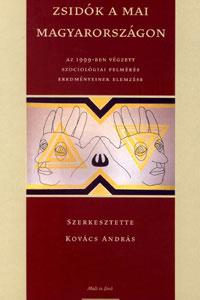
The studies in the volume give a multi-layered sociological portrayal of Jewish survivors of the Holocaust who stayed in Hungary despite their experiences. The portrayal is based on concrete research and the “hard data” of a comprehensive survey. Such a thorough survey has never been undertaken before in Hungarian-Jewish history. The studies comprising the volume arose as the result of sociological research organised in 1999 by the Minority Research Institute of the Sociological Institute of ELTE University in Budapest. The various studies discuss, to a lesser or greater degree of emphasis, the Jewish populace or people of Jewish descent as a special group within the population. Through the dynamics of identity and difference, the authors (Róbert Angelusz, András Kovács, János Ladányi, Tamás Stark, Róbert Tardos) also examine the historical processes influencing the whole of society and determining the past half-century. Their inquiries cover the social and economic roles of Jews in contemporary Hungary, the factors establishing identity, and the broad range of its demographic and historical changes. The main question is, after all, the choice of identity; the possibility that arose after the change of political system has materialised, thus enabling social scientists to address openly the task of measuring Jewish identity and of interpreting the data received. We also publish all the associated statistical data, as well as the complete research material of the survey. In doing so, we offer to the academic and “interested” public a fundamental and standard work of social science and historiography.
More...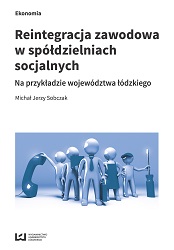
Spółdzielnie socjalne to jeden z rodzajów podmiotów gospodarki społecznej, który został wprowadzony do polskiego porządku prawnego w 2004 r. w celu przeciwdziałania wykluczeniu społecznemu. Organizacje te zalicza się do narzędzi aktywnej polityki rynku pracy, gdyż poprzez zatrudnienie osób zagrożonych ekskluzją społeczną dążą do ich reintegracji społeczno-zawodowej. Ma to na celu poprawienie zatrudnialności spółdzielców na otwartym rynku pracy w dalszych etapach ich karier zawodowych. Spółdzielnia socjalna to przedsiębiorstwo, które może działać w różnych branżach i konkurować z innymi podmiotami rynkowymi. Nie może jednak dobrowolnie dobierać pracowników, gdyż w większości muszą to być osoby z różnych powodów zagrożone wykluczeniem społecznym. Prezentowana monografia została napisana na podstawie badań weryfikujących skuteczność spółdzielni socjalnych w wypełnianiu ich głównego celu ustawowego, jakim jest reintegracja zawodowa osób zagrożonych wykluczeniem społecznym. Jest to interesujące studium stanu rozwoju spółdzielczości socjalnej w Polsce po dziesięciu latach od zaistnienia tej formy działalności w gospodarce.
More...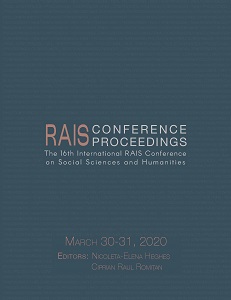
This research compares the housing condition of people receiving national merit benefits and that of people from the group of low-income families. The research examined the mean difference of the two groups along with correlation and regression analyses. The descriptive statistics and percentage difference show that those who receive national merit benefits are less likely to own houses; to have ventilation installed in their bathroom; to live in asbestos-free houses; to have a solid structural frame, and to live in houses free of water leakage and dew condensation. Regression analysis shows that marital status explains the change of housing satisfaction for these people.
More...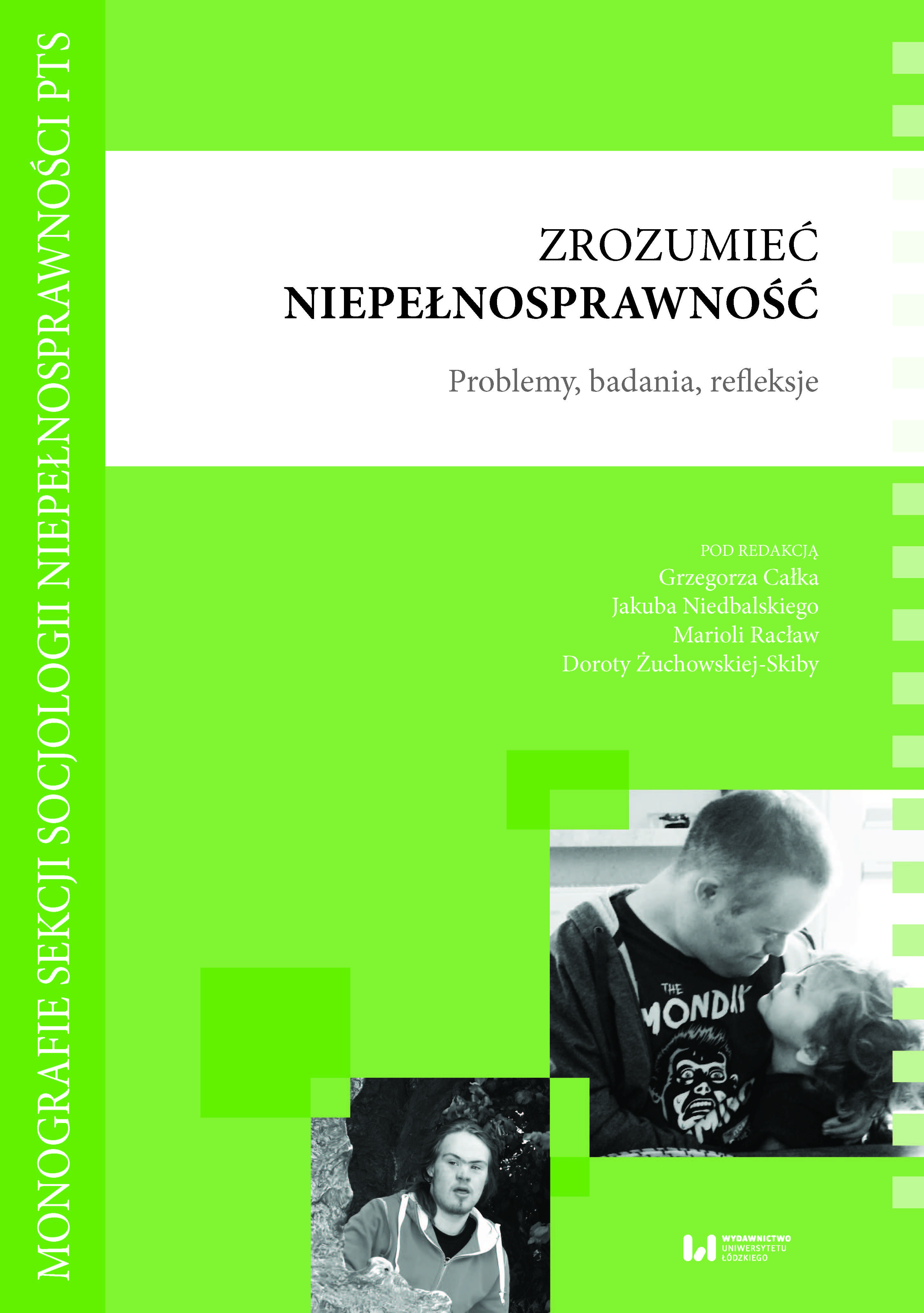
The book presents disability as an interdisciplinary issue of interest to representatives of numerous scientific disciplines. It includes chapters on systemic solutions and policies in disability, the role and significance of institutions in the disability support system, society and communities towards disability and people with disabilities, the interactional dimension of disability, and disability as a personal experience. Apart from its scientific dimension, the publication also has a significant social value through its practical and applied nature. Hence, the proposed book is intended for representatives of the academic environment, first of all for sociologists and pedagogues interested in the issues of disability, as well as to practitioners involved in the provision of aid and support to this group of social welfare clients and to all those, who have any contacts with the disabled in the everyday lives, especially to relatives and family members of such individuals.
More...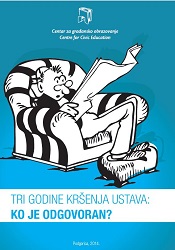
Centar za građansko obrazovanje (CGO) je, u okviru potprograma Jednake mogućnosti, prije gotovo dvije godine podnio Ustavnom sudu Crne Gore Inicijativu za ocjenu ustavnosti pojedinih odredbi Zakona o prekršajima ocjenjujući da se njima krše Ustavom zagarantovana prava građana/ki Crne Gore. Ustavni sud do danas o tome nije donio odluku, čime su hiljade naših građana/ki dovedene u poziciju nejednakosti pred zakonom, a vladajućim strukturama ostavljen nekontrolisan mehanizam zloupotrebe.
More...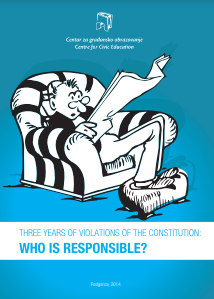
Centre for Civic Education (CCE), within a subprogramme Equal Opportunities, has filed an Initiative to review the constitutionality of certain provisions of the Law on Misdemeanors to the Constitutional Court of Montenegro almost two years ago, assessing that they violate constitutionally guaranteed rights of citizens of Montenegro. Constitutional Court has not made a decision up to this date, allowing thousands of our citizens to be put in a position of inequality before the law, while the governing structures were left with uncontrolled mechanism of abuse.
More...
Mediji imaju ključnu ulogu u borbi za javno dobro i ostvarivanje ljudskih prava. Odabirom tema i načinom na koji o njima izvještavaju, utiču na kritičko sagledavanje stvarnosti i formiranje javnog mišljenja. Zbog toga je njihova uloga od posebnog značaja kada je u pitanju unaprjeđenje položaja osoba sa invaliditetom (OSI). Zakonska je obaveza medija da kreiraju raznovrsne i kvalitetne sadržaje za sve pojedince i društvene grupe, kao i da podstiču inkluziju osoba sa invaliditetom, ali se u praksi to ne reflektuje. Sporadičnim i neadekvatnim izvještavanjem o problemima ove grupacije, mediji diskriminišu OSI i u društvu zadržavaju stavove bazirane na stereotipima, predrasudama i stigmatizaciji. Prilikom informisanja o OSI, pred urednicima i novinarima otvara se mnogo pitanja - koji jezik primijeniti, a da se ispoštuju sve smjernice; kako pričati o OSI, a da invaliditet ne bude nosilac priče; kako izbjeći patetiku, a da priča ne izgubi emociju; kako zaobići senzacionalizam, a zainteresovati publiku; kako uopšte obrađivati teme koje se bave OSI? Ova publikacija, uz kratak osvrt na relevantne međunarodne i domaće propise u oblasti medija, kao i presjek istorijske promjene pristupa invaliditetu, daje smjernice za novinare i urednike koji izvještavaju o OSI i koji bi trebalo da budu nosioci transformacije društva. Ona sadrži i najznačajnije preporuke koje je važno ispoštovati da bi se iz dominantnog medicinskog modela pristupu invalidnosti prešlo na socijalni, koji je utemeljen na principima ljudskih prava i ostvarivanja jednakosti za sve. Takav pristup ima za cilj osnaživanje osoba sa invaliditetom i njihovo uključivanje u društveni, ekonomski, politički i kulturni život zajednice. Stoga je priručnik namijenjen i svima onima koji svojim radom i promjenom stavova žele da doprinesu takvoj transformaciji svijesti i rušenju predrasuda i stereotipa o osobama sa invaliditetom. Standardi, neophodni za razvoj društva utemeljenog na modernom konceptu ljudskih prava, postavljeni su u međunarodnim i domaćim dokumentima. Od predstavnika medija se očekuje da prepoznaju važnost svoje uloge, da zauzmu proaktivniji stav i da u moru tema nađu prostor za osobe sa invaliditetom, jer tako ispunjavaju i svoju obavezu da podstiču stvaranje jednakih mogućnosti za sve. Istinski inkluzivno društvo podrazumijeva i istinito, objektivno i potpuno izvještavanje o životu osoba sa invaliditetom.
More...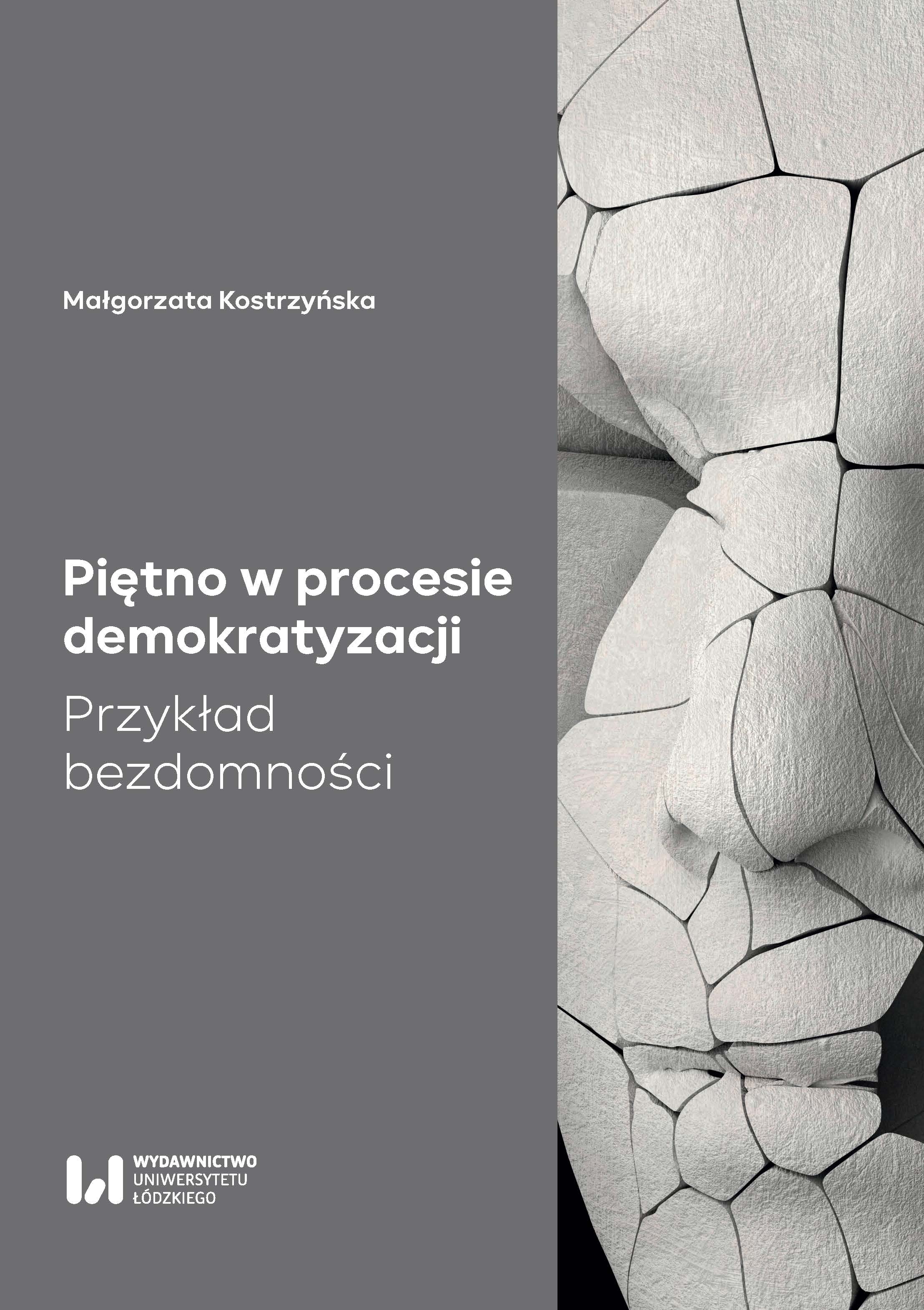
This monograph describes experiences of the world without home, which are the result of accompanying closely people experiencing homelessness by the researcher, her engagement in their everyday affairs and cooperation promoting changes. Each research involved a few-years participation and was a socially committed research. The aim of this publication is to present the signs of a stigma in the process of democratisation as well as the paradoxes that become a part of this process, as a result of social mechanisms of institutional help, perpetuated stereotypes and relations with those who bear the stigma. Here, homelessness has become an example allowing us to observe social and educational phenomena related to various social groups interacting at the intersection of two worlds: that of the ordinary and that of those bearing the stigma. The purposefulness of entering into mixed interactions as part of e.g. organisations or associations, as presented in this monograph, is an example of maintaining the stigma in its bearers and reveals a certain power play, entangled in seemingly noble ideas. The first chapter presents the ways of understanding the key theoretical categories in this work, i.e. those of homelessness and stigmatisation. In the second chapter the democratisation process is depicted together with the paradoxes involved. It directly discloses the mechanisms of exclusion and reinforcing homelessness, or instrumental treatment of the idea of creating associations. The third chapter presents an analysis of specific strategies used by people experiencing homelessness in order to adapt to the democratization process. The fourth chapter shows the democratisation process difficulties in the field of aid directed at the stigmatized.
More...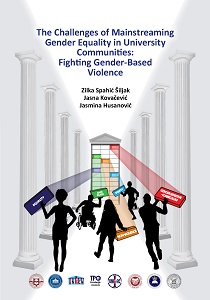
Gender equality is a fundamental value in the overall mission of the European Union. It includes non-discrimination and equal opportunities for all, as well as affirmative measures for those who are disadvantaged. One of the challenging goals of gender responsive policies and programmes is to eliminate gender-based violence (GBV) in many political, social, economic and cultural contexts. As a global phenomenon, GBV is closely connected to gender-social norms and expectations and inequitable relations of power based on gender identities. UNIGEM project included 18 partner universities in the Balkans to initiate institutional changes and change organisational culture at the universities which must have zero tolerance towards GBV in its environment. At the very beginning of UNIGEM project, TPO Foundation conducted an extensive quantitative and qualitative research through surveys and in-depth interviews at 18 universities with the aim to explore gender (in)equality and GBV in these institutions.
More...
The purpose of the research is to outline the specifics of Bulgarian gardeners and Bulgarian horticulture in Budapest in the first quarter of the 21 century by means of two examples.Methods of observation, biographical approach, and free and semi-structured interviews are applied. The relationship between Bulgarian horticulture and cultural heritage is analyzed.The study is the result of the author’s participation in a project “Migrations. Modernities, and Intercultural Mediation – Bulgarian Immigrant Groups to Hungary in late 19th and early 20th c. and their Impact on the Social and Cultural Life of the Host Society”.
More...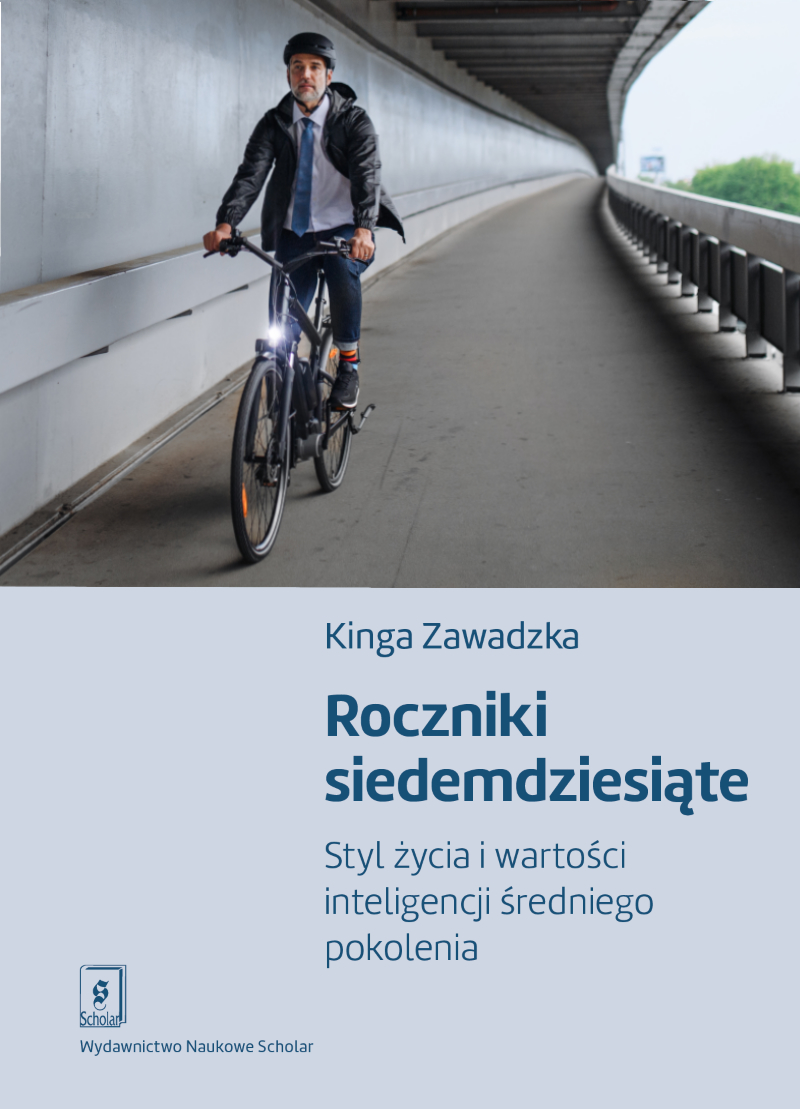
Książka wzbogaca naszą wiedzę na temat przemian średniego pokolenia Polaków sytuujących się na przecięciu klasy średniej, wyższej i inteligencji. Przynosi ciekawe ustalenia i dostarcza przy okazji bogaty materiał do namysłu nad trudnością kulturowej klasyfikacji członków tej grupy oraz niepewnością, jakiej doświadczają oni w odniesieniu do własnej pozycji społecznej mimo zdecydowanych poglądów na życie zawodowe, wychowanie dzieci, wybór kuchni czy cel wakacyjnych podróży. dr hab. Piotr Kulas, prof. UW Autorka zastanawia się nad tym, co różni nowych inteligentów (…) wykonujących zawody profesjonalistów i menadżerów od pokolenia ich rodziców oraz do jakiego stopnia postawy, styl życia i system wartości tej kategorii społecznej można nadal tłumaczyć językiem dawnej polskiej inteligencji, a do jakiego językiem klasy średniej w rozumieniu zachodnim, a także co łączy, a co różni profesjonalistów i menadżerów w Polsce i na Zachodzie? dr hab. Dorota Mroczkowska Kinga Zawadzka, doktor nauk społecznych, adiunktka w Instytucie Filozofii i Socjologii PAN w Warszawie. Zajmuje się badaniami struktury społecznej i stylów życia.
More...
The book explores the discourse constructed around the process of deinstitutionalization of social services for people with disabilities. The main perspective is the sociology of knowledge as formulated by Karl Mannheim in his work Ideology and Utopia. In this perspective, the assumptions of the medical model of disability are identified as the dominant ideology, while the contesting utopia represents the approach of the social and human-rights model. The parties using ideology and utopia were conventionally named conservative and reformist, respectively. Among the parties creating the discourses of deinstitutionalization, groups with specific experiences of disability constituting their socio-behavioral situation were identified: people with disabilities, their families, employees of support institutions, decision-makers building and implementing social policy and allies of people with disabilities. An additional factor, taken into account, is access to power understood as the ability to influence the formulation and implementation of social policy. The analysis is based on texts which reflect the discourses created by various experts between 2012 (ratification of the UN Convention on the Rights of Persons with Disabilities by Poland) and 2022 (adoption of the Strategy for the Development of Social Services). The parties' conflictual functioning, “talking past one another” and making ad hoc alliances leads to the conclusion that deinstitutionalization is an endeavor that will never be finally concluded. The parties' separate sets of thoughts, based on different understandings of the same concepts, do not allow them to communicate effectively and thus to work towards a common deinstitutionalization project.
More...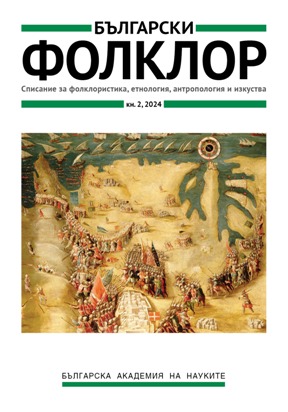
The article examines, from a historical and contemporary perspective, the processes of valorizing diaspora gardening as local heritage in two significant "gardener villages": Polikraishte and Draganovo (within the municipality of Gorna Oryahovitsa). Based on field research conducted in Bulgaria and Hungary, the publication investigates how diaspora gardening becomes part of the local festivities and commemorative practices. The article traces how transnational gardening, while practiced as a local livelihood, is connected to traditional festivities and examines the changes in the local dimensions of the festive calendar during socialism and more recently. A separate section is dedicated to the new festivity (its emergence, development, and messages) as a current means of transforming local livelihood into cultural memory and the local heritage of the two settlements.
More...
The present text includes a brief review of the publications and research on the theme of the motherland in Bulgaria and abroad. In the context of the contemporary migration movements some possible aspects and ways of studying motherland concept are also presented. By analyzing the attitudes of the Bulgarian expatriates coming back, the author presents the relation and the images associated with the motherland – i.e. the native home, the coziness of the home, the well-known nature, as well as some fragrances and feelings.
More...